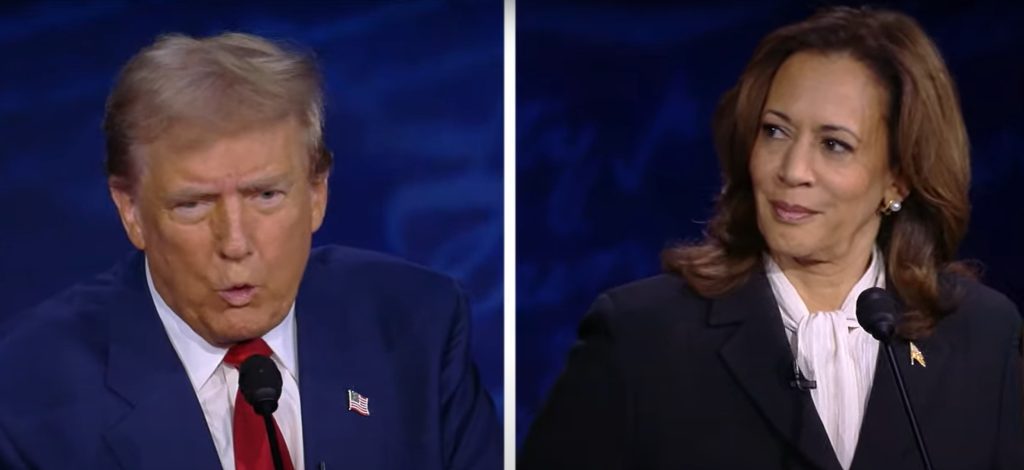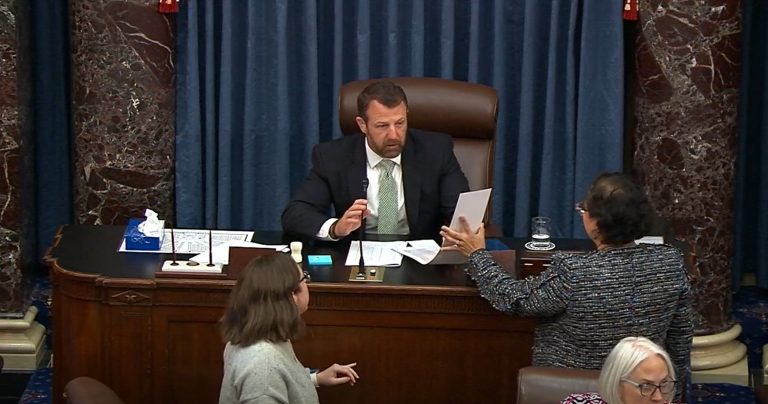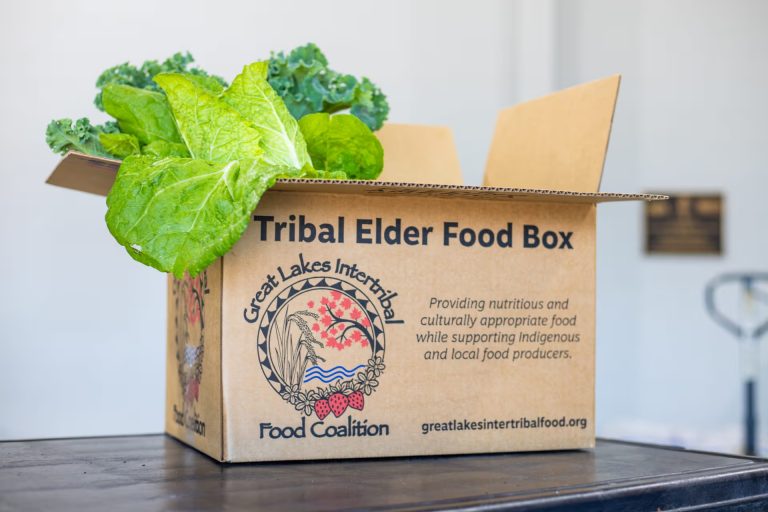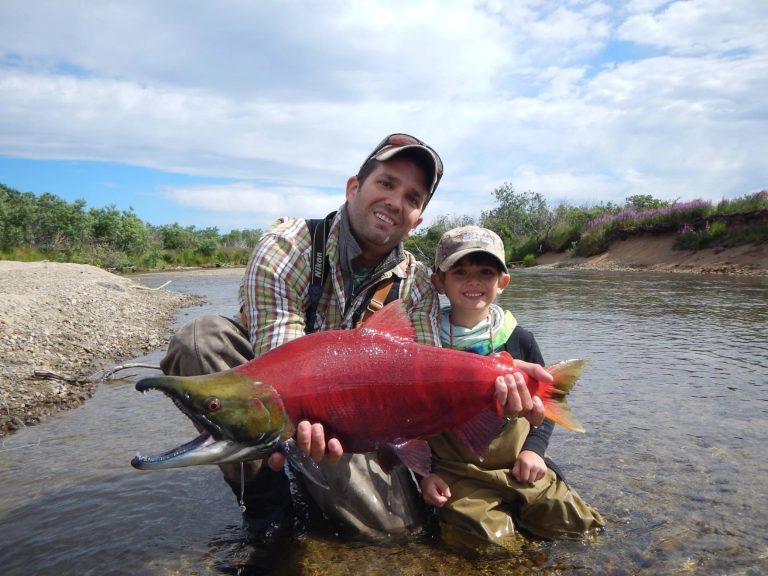Podcast: Play in new window | Download | Embed
Vice President Kamala Harris and former President Donald Trump took the stage Tuesday night for their first presidential debate.
During the 90-minute debate, the candidates did not directly mention tribes, but covered a number of issues impacting Indian Country from healthcare to climate change to reproductive rights.
While the candidates talked about where they stand on the issues, Native vote advocates and Native organizations are working on voter and election education, engagement, and outreach.
New findings that look at Native Americans participating in elections are mixed. But North Dakota outreach leaders say they’re coming off a strong summer of civic engagement.
The Native American Rights Fund last month reported national growth trends among tribal populations for voter turnout, including a 14% increase between 2018 and 2020.
But because of longstanding barriers, there’s still a significant gap compared with non-Hispanic white voters.
In responding to those concerns, Erika Red Tomahawk with North Dakota Native Vote says her team connected with people at powwows across reservations in North Dakota.
“There was a lot of meaningful conversations about the importance of voting, with even some individuals expressing that they were going to run for official positions themselves. So, it was clear that there was a strong desire to participate actively within civic processes.”
Red Tomahawk says staff did chat with some individuals who felt a disconnect with the voting process.
She says for groups like hers, those conversations are vital because the goal is to assist tribal voters in understanding that their voice matters.
“Indian Country in North Dakota is huge. You know, we have relatives everywhere and being able for them to vote and share their voice as a collective to have more representation – it’s very important. ”
Her group engaged with more than 200 prospective voters at summer events, who received information on polling locations and voter ID requirements.
She’s optimistic that the energy from the events will result in stronger voter turnout this fall.
This story includes reporting from Mike Moen with Public News Service, which is supported in part by North Dakota Native Vote.

Estero de San Antonio, north of Dillon Beach, Calif. (Photo: David Dines / Western Rivers Conservancy)
A Northern California tribe is celebrating its receipt of nearly 500 acres of coastal ranchland north of San Francisco.
As Jacob Resneck reports, the Federated Indians of Graton Rancheria received the property from a conservation group seeking to return ancestral lands to tribal entities.
The Graton Rancheria received the 466-acre ranch from the Western Rivers Conservancy which bought the Marin County property last year.
The mile-and-a-half of Pacific coastline was a gift from the conservancy which has worked with the California Department of Fish & Wildlife to engineer returning the land to Coast Miwok and Southern Pomo tribal members for conservation and stewardship.
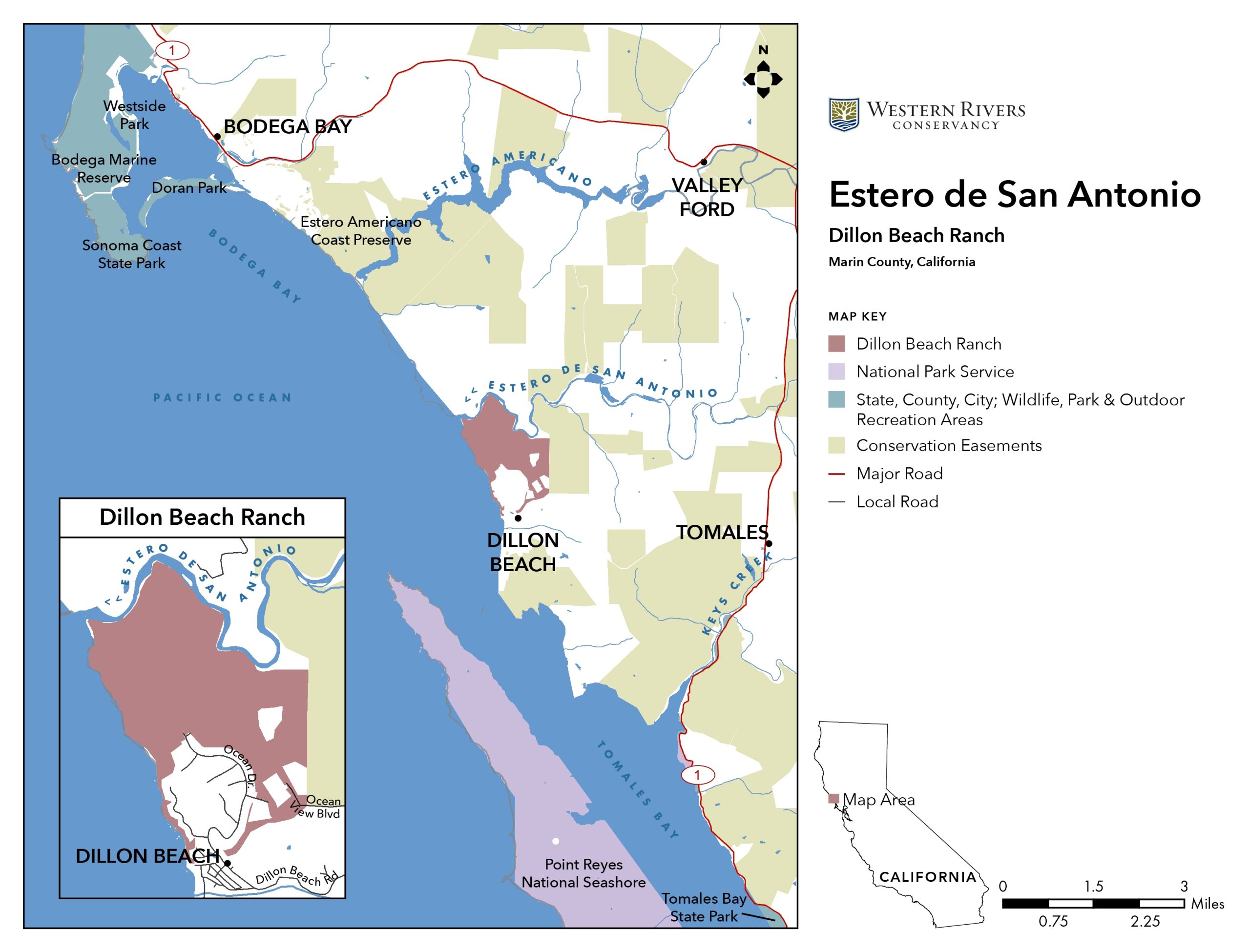
Graton Rancheria Chairman Greg Sarris called the acquisition a “remarkable opportunity” to take responsibility for the ranch, which is just north of Dillon Beach, a coastal community with a popular private campground.
“It’s a great example of what can happen when tribes work with other organizations so that the land once again becomes under the stewardship of the people who’ve known it from time immemorial.”
Graton Rancheria operates the San Francisco Bay Area’s largest casino and resort in nearby Sonoma County. But the tribe says the ranch includes sacred sites which will be set aside for long-term conservation and protection.
State wildlife officials have identified the area as among the most significant habitat areas in California.

(Courtesy President Buu Nygren / Facebook)
Navajo Nation President Buu Nygren and Navajo Nation Council Speaker Crystalyne Curley were among those to attend the U.S. Department of the Interior Secretary’s Tribal Advisory Committee meeting this week, hosted by Sec. Deb Haaland (Laguna Pueblo) in Washington, D.C.
The two-day meeting with federal agencies brought together tribal representatives from the 12 Bureau of Indian Affairs regions.
Among issues Navajo leaders discussed were water rights, improving infrastructure, and efforts to stop transportation of uranium ore through Navajo land.
The advisory Committee is intended to ensure tribal leaders have direct contact and communication with top officials.
Get National Native News delivered to your inbox daily and stay up-to-date on the 2024 Native Vote. Sign up for our daily newsletter today.
